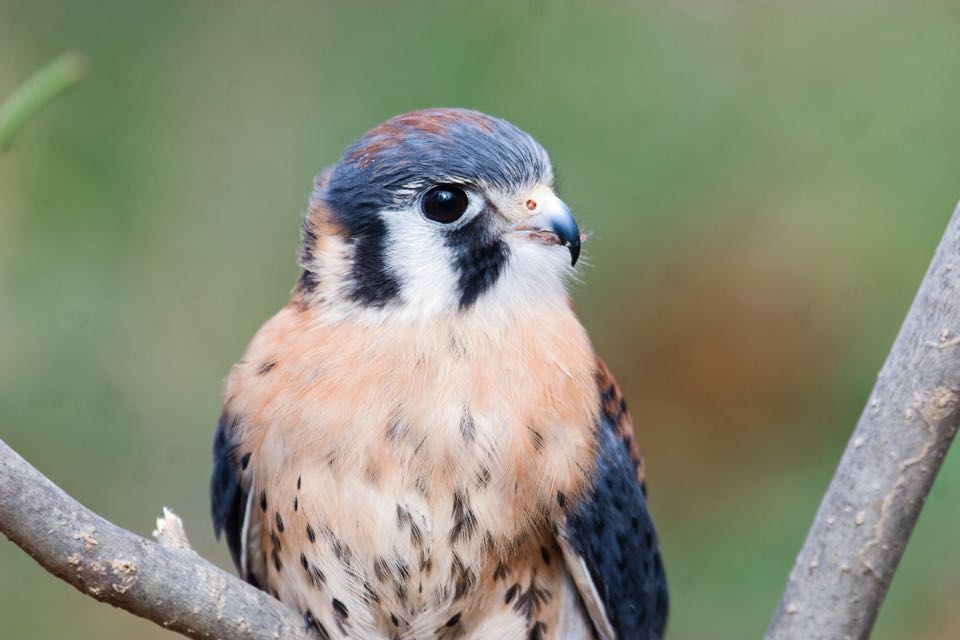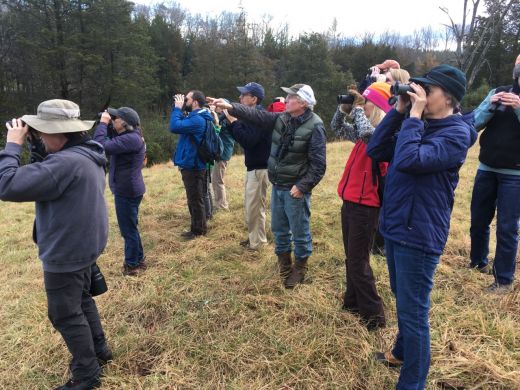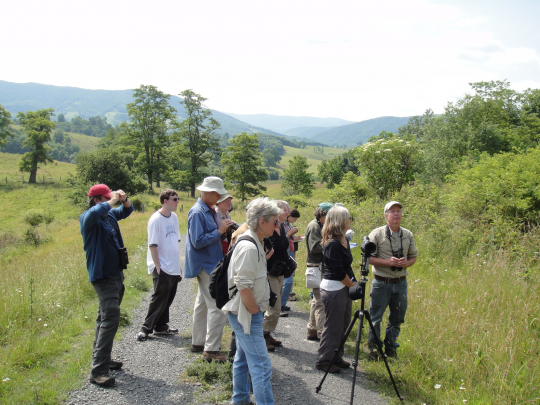By Ashley Peele

American Kestrel at Meadowlark Gardens Rehab by Bob Schamerhorn
The 2017 Atlas season is rolling along and it’s high time to begin our volunteer profile series! These articles introduce members of our Atlas community who are making significant and unique contributions to the project. To kick of 2017, meet Dan Bieker! Dan began his career with the Ohio Division of Wildlife, working on Wood Ducks and American Kestrels. Nowadays, he owns a horse farm in Albemarle county and teaches for Piedmont Virginia Community College (PVCC). Dan has been a 30-year member of the Virginia Society of Ornithology (VSO), serves on the board, and is now the incoming Vice President.
As an adjunct professor at PVCC, Dan teaches Appalachian Ecology and Field Ornithology, which are two of the most fun and interesting class topics that I can think of. As part of his Ornithology course, Dan has been introducing his students to the VABBA2 project and helping them learn how to document and report breeding behaviors through the Atlas eBird portal. The Atlas project lends itself well to new and learning birders, because of the nature of field observations. When the goal is to collect behavioral observations, a birder must slow their pace down and spend some time watching what birds are doing in a given location.

Dan (center) and his Field Ornithology students, some of whom have gone on to become VABBA2 volunteers.
This style of birding helps students to begin familiarizing themselves with not just the identity of a given bird, but also its unique behavioral characteristics. Introducing students to the VABBA2 and citizen in general is an important service, both for the project and the broader statewide bird conservation efforts. It is vitally important that young people and new students are exposed to birding and wildlife conservation, because this will ensure that natural resources continue to be valued in our society. For this, we appreciate Dan’s efforts to educate new generations of birders and wildlife enthusiasts!
Additionally, Dan initiated the VSO’s Kestrel Nest Box program in 2013, which has placed hundreds of boxes around VA. This program has expanded into an extensive kestrel monitoring effort, particularly in Bath and Highland counties. Dan and his kestrel project partner, Patti Reum, are launching an in-depth study of kestrels in the Blue Grass Valley to better understand why breeding densities are so high in this particular area of Highland county. The project has not only provided important nesting sites for kestrels, but has also done a tremendous job of educating Virginians about the ecological challenges facing cavity-nesting species like American Kestrels and Eastern Screech Owls.

Dan, Patti Reum (far right) and Appalachian Ecology class studying birds at future kestrel monitoring sites in the Bluegrass Valley of Highland county.
We could go on for some time about Dan’s efforts on behalf of wildlife and natural resources in the state, but will end by thanking him for providing students with the opportunity to learn more about Ornithology and for bringing the VABBA2 into his classroom. In a world where universities are doing away with courses like Ornithology, Mammalogy, and Herpetology, we are grateful for professors like Dan who continue to pass on their knowledge and enthusiasm to the next generation.
~Dr. Ashley Peele – State Coordinator, VABBA2

